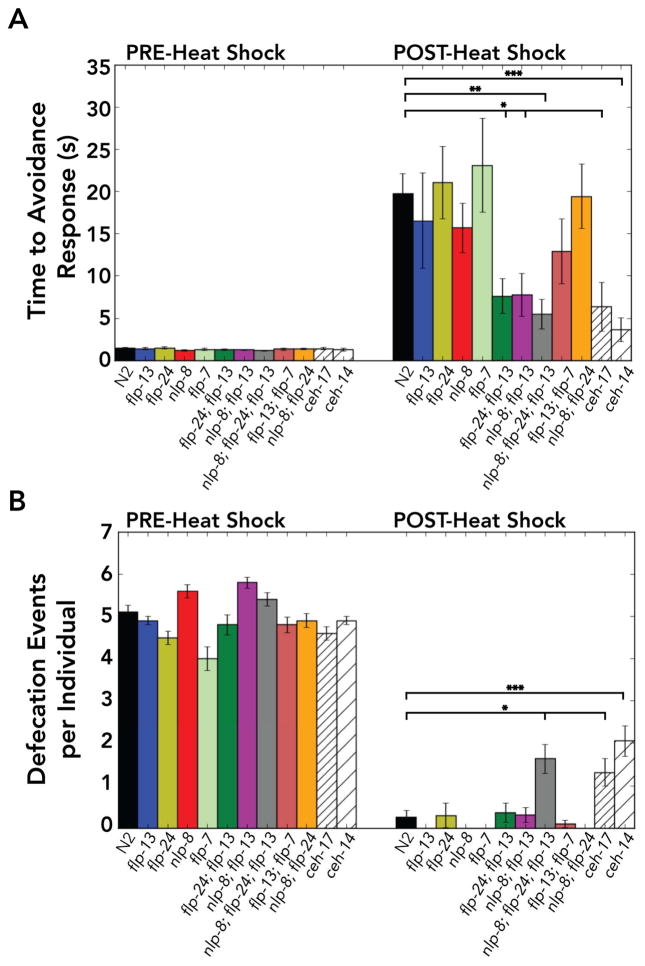Figure 3. Double and triple mutants of ALA-enriched neuropeptides suppress the increased response latency to aversive stimuli, while only the triple mutant suppresses defecation quiescence during stress-induced sleep.
(A) C. elegans were presented with 30% 1-octanol and avoidance behavior was scored by video recordings before (PRE) and 30 minutes after (POST) heat shock (a 35°C heat shock was used). If there was no response 60 seconds after stimulus delivery, the individuals were classified as non-responsive (Table S4). The nlp-8; flp-13 double mutant, flp-24; flp-13 double mutant, and nlp-8; flp-24; flp-13 triple mutant were resistant to the increased response latency observed during stress-induced sleep. (B) Average number of defecation events for individuals five minutes before (PRE) and 30 minutes after (POST) heat shock. A 33°C heat shock was used for more consistent results (Supplemental Information). We found that our negative controls ceh-14 and ceh-17 had background suppression of defecation at 30 minutes (Table S5). Only the triple mutant (nlp-8; flp-24; flp-13) was resistant to suppression of defecation during stress-induced sleep, and this was statistically indistinguishable from ceh-14 and ceh-17 (p>0.4). Data shown as mean±SEM; n≥10 C. elegans for each strain (see also Table S4–S5); *p<0.05; **p<0.01; ***p<0.001; unpaired t-test with Bonferonni correction for multiple comparison. Statistical comparisons are indicated for comparisons to N2.

